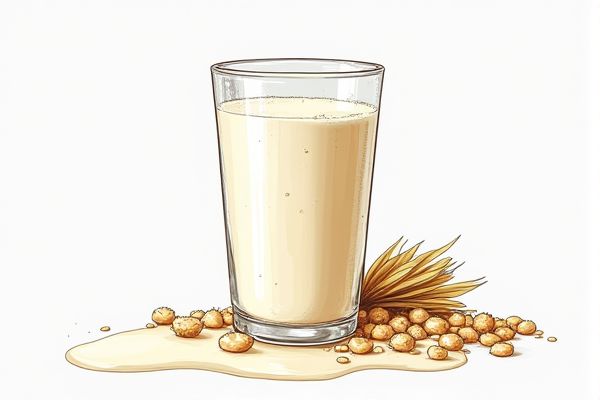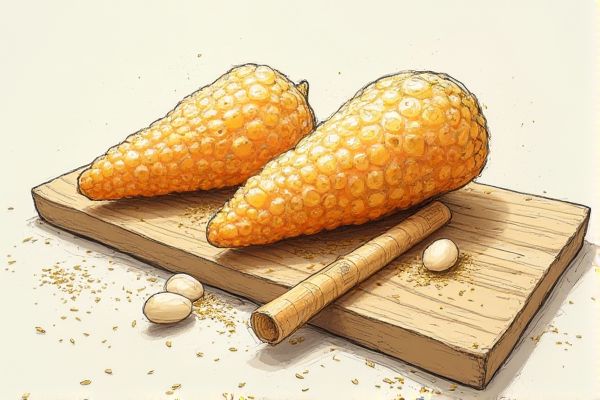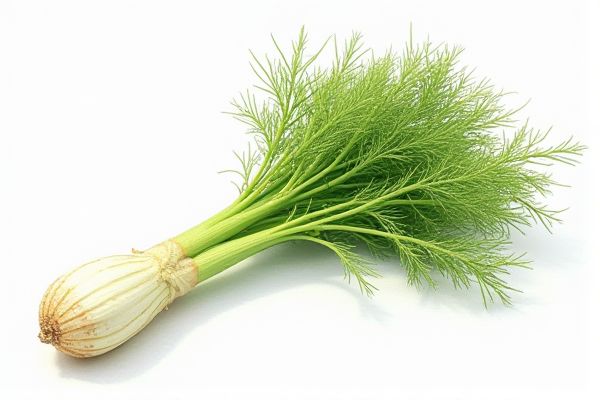With the growing popularity of plant-based diets, soy milk has become a staple in many households around the globe. Known for its creamy texture and rich nutritional profile, soy milk is a versatile option for those seeking a dairy-free alternative. Numerous brands have emerged in the market, each offering unique flavors and nutritional benefits to cater to diverse palates. For a comprehensive overview of the best soy milk brands available today, continue reading below.

Illustration of soy milk
Best brands of soy milk in 2025
Silk
Silk, a renowned brand under WhiteWave Foods/Danone, is a leading producer of soy milk, known for its high-quality and nutritious products. Silk's Original Soymilk, made from whole-harvested soybeans grown in the U.S. and Canada, is a popular choice, offering 30% of the daily calcium and 6% of the daily iron per 1-cup serving. Despite the dominance of conventional soy milk, which holds an 89.3% market share, Silk's products cater to the growing demand for plant-based alternatives. The soy milk market, expected to reach USD 12,860.8 million by 2034, is driven by health-conscious consumers and innovative product launches, with Silk being a key player in this expansion. Silk's products are also WIC-approved in most states, further enhancing their accessibility.
Westsoy
Westsoy, a brand under WhiteWave Foods/Danone, is renowned for its high-quality soy milk products, standing out for its plain, unsweetened offerings that appeal to health-conscious consumers. Known for using only soybeans and water as ingredients, Westsoy avoids unnecessary additives, preservatives, and thickeners, making it a preferred choice for those seeking a natural and nutritious dairy-free alternative. The brand's commitment to quality and simplicity has contributed to its strong presence in the market, which is expected to grow significantly, with the soy milk market projected to reach $13.6 billion by 2032. Westsoy's products are part of a broader industry trend where companies are investing heavily in research and development to enhance product quality and taste, driving market growth. As the demand for plant-based alternatives rises, Westsoy continues to be a key player in the soy milk market. For more information about their plain unsweetened soy milk, you can visit the Westsoy product page.
Alpro
Alpro, a leading brand in the soy milk market, is known for its high-quality and diverse range of plant-based products. As part of the Danone group, Alpro has been a significant player, contributing to the global soy milk market valued at USD 5,614.5 million in 2023, which is expected to grow at a CAGR of 9.1% by 2033. Alpro's products cater to the rising demand for plant-based alternatives, driven by growing health consciousness and the increasing population of vegans and lactose intolerants. The brand's strong presence in the market is evident from its inclusion among the top players, along with other major companies like Vitasoy and Pacific Foods. Alpro's commitment to innovation and expanding product offerings has been crucial in the market's growth.
Eden Foods
Eden Foods is a leading producer of soy milk, particularly through its EDENSOY brand, which was introduced in 1983 as the first soymilk in North America to be verified to Non-GMO Project Standards. EDENSOY is made from locally grown, organic, non-GMO soybeans and uses deep glacial deposit well water purified through double reverse osmosis. It contains no dairy products, animal by-products, or genetically engineered ingredients, making it a safe choice for lactose intolerant individuals. The Unsweetened Edensoy variant boasts 12 grams of whole soy protein per 8-ounce serving and has received a perfect score of 1850 in The Cornucopia Institute Plant-Based Beverages Scorecard. EDENSOY is also packaged in BPA-free, recyclable aseptic cartons.
Pacific Foods
Pacific Foods, a prominent brand under the Campbell Soup Company, is a leading producer of soy milk, known for its high-quality and diverse product offerings. The company has been a key player in the soy milk market, contributing to the sector's significant growth, with the global soy milk market expected to reach $13.6 billion by 2032. Pacific Foods benefits from the increasing consumer shift towards plant-based diets and health-conscious living, particularly in the Asia Pacific region, which holds a substantial share of the global soy milk market. The brand's commitment to innovation and expanding product lines has helped in capturing a significant market share, with conventional soy milk dominating the market at 89.3% as of 2024. As the demand for dairy alternatives continues to rise, Pacific Foods remains a major contributor to the industry's growth. For more information, visit the Pacific Foods website.
Kikkoman Pearl
Kikkoman Pearl is a leading brand in the soymilk market, known for its high-quality and organic products. Since 2004, Kikkoman has been expanding its soymilk business, and by 2018, it began delivering its products overseas, particularly to the Asia/Oceania region. The brand offers a wide range of flavors, including unique options like matcha and black sesame, and has gained significant popularity with its innovative flavor combinations. Kikkoman Pearl Organic Soymilk captures a significant share of the organic soy milk market, which accounts for 55% of the total soy milk market as of 2023. The brand's commitment to using whole, organic, and non-GMO soybeans ensures a healthy and delicious product.
365 by Whole Foods Market
365 by Whole Foods Market is a well-known brand among organic food consumers, with 53% brand awareness and a 20% usage share among U.S. organic food eaters as of 2022. Despite some criticisms regarding transparency and organic practices in their dairy products, their soy milk offerings are certified organic, free from synthetic pesticides and genetically engineered ingredients, though they attract moderate processing concerns. The 365 Everyday Value Soymilk, for example, is a good source of naturally occurring vitamin A and has no synthetic additives, however, it does contain 2 teaspoons of added sugar per serving. The brand's loyalty is high, with 90% of consumers likely to use the brand again.
Trader Joe's
Trader Joe's is recognized for its private label soyfoods, although it faces challenges in transparency regarding the sourcing of its soybeans. The company's soymilk, part of its soyfood products, is made from 20% organic and 80% non-GMO soybeans, but the lack of detailed sourcing information hampers full consumer trust. Despite this, Trader Joe's maintains a significant market presence, reflecting its commitment to non-GMO products and occasional testing for GMO contamination. However, the company's score on the Cornucopia Institute's Soy Scorecard is 385 out of 1000, indicating room for improvement in transparency and sourcing practices. Trader Joe's continues to be a popular choice for consumers seeking non-GMO and organic soy products. For more information about their products, visit Trader Joe's official website.
So Good
So Good is a leading brand in the soy milk market, known for its wholesome and tasty products. As the market leader in Australia, So Good holds a significant market share of 52% in the soy milk category. Despite facing a recall in 1998 due to contamination threats, So Good successfully recovered its market share, regaining 100% of its pre-recall sales within eight weeks and even increasing its market share in the chilled soy category to 37%. The brand's resilience and consumer trust were evident as 95% of consumers felt that the new stock was safe to consume after the recall. So Good's strong recovery and continued growth underscore its position as a top producer in the soy milk industry. For more detailed insights, explore this analysis on So Good's market strategies and recovery.
Earth Balance
Earth Balance, though not exclusively a soy milk producer, is a well-known brand in the plant-based market; however, it is not specifically highlighted as a leading soy milk producer in recent data. Nevertheless, the soy milk market itself has seen significant changes, with soy milk sales plateauing at around $212 million in the US as of July 2024, down from its peak of over $1 billion in annual retail sales. The global plant-based milk market, including soy milk, is projected to grow at a CAGR of 11.4% to reach $52.54 billion by 2031, driven by health consciousness and rising awareness of protein-rich foods. Soy milk, despite current flat sales, remains a crucial segment, especially in regions like Asia where health and wellness trends are on the rise. The soy-based milk market accounted for over 25% of the global plant-based milk market share in 2020 and is expected to grow at a CAGR of 11.9% during the forecast period.
















Leave a Reply
Your email address will not be published.